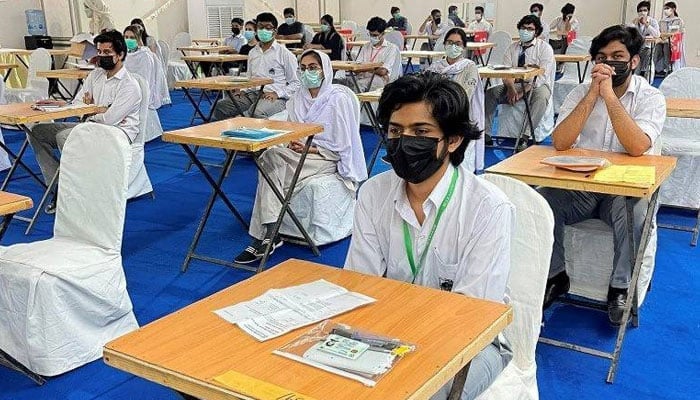KARACHI: The rupee fell sharply against the US dollar on Wednesday, losing Rs5.38, or 1.89%, to close at Rs290.22 per dollar in the interbank market, data shared by the State Bank of Pakistan showed.
The local currency had previously reached a record low of Rs288.42 per dollar on April 11.
The local unit lost ground after Pakistan Tehreek-e-Insaf (PTI) Chairman Imran Khan was taken into custody a day earlier on charges of involvement in the Al-Qadir Trust case.
Samiullah Tariq, head of research at Pakistan-Kuwait Investment Company, told Geo.tv that uncertainty regarding the International Monetary Fund (IMF) programme and increasing political turmoil were impacting the exchange rate.
“The rupee-dollar parity doesn’t seem linked to the actual supply and demand of dollars,” he maintained.
“Continuing political instability has taken a toll on market sentiment pushing the Pakistani rupee to hit a record low. it has also increased uncertainty regarding the resumption of the IMF programme.
“The heightened political turmoil has come at a time when the economy has been in the doldrums for months largely due to an acute balance of payment crisis, with falling State Bank of Pakistan reserves barely covering a month of highly controlled imports,” commented former finance ministry adviser Khaqan Najeeb.
He also pointed out that even if Pakistan was able to finance its balance of payments till June, it would be hard to arrange financing following the end of the current IMF programme.
Negotiating a new programme is an uphill task till there is certainty of the political cycle in the country, Najeeb added.
A day earlier, Moody’s Investor Service warned that without an IMF programme, Pakistan could default as its financing options beyond June are “uncertain”.
“We consider that Pakistan will meet its external payments for the remainder of this fiscal year ending in June,” sovereign analyst with the ratings company in Singapore, Grace Lim, was quoted by Bloomberg.
“However, Pakistan’s financing options beyond June are highly uncertain. Without an IMF programme, Pakistan could default given its very weak reserves.”
Rising political tensions ahead of elections due this year are adding to the risk of a delay in the loan, as former prime minister Imran Khan is showing no signs of backing down against the government.
The coalition government is struggling to revive a $6.5 billion IMF bailout programme, which had stalled after the government failed to meet some loan conditions.
“An engagement with the IMF beyond June would support additional financing from other multilateral and bilateral partners, which could reduce default risk,” Lim, in an emailed response to questions, said.
It should be noted that Pakistan’s foreign-exchange reserves — which stand at $4.5 billion — remain extremely low and sufficient to cover only about one month of imports, she said.

 Latest News23 hours ago
Latest News23 hours ago
 Entertainment23 hours ago
Entertainment23 hours ago
 Business23 hours ago
Business23 hours ago
 Latest News23 hours ago
Latest News23 hours ago
 Latest News23 hours ago
Latest News23 hours ago
 Latest News18 hours ago
Latest News18 hours ago
 Latest News18 hours ago
Latest News18 hours ago
 Latest News18 hours ago
Latest News18 hours ago
























